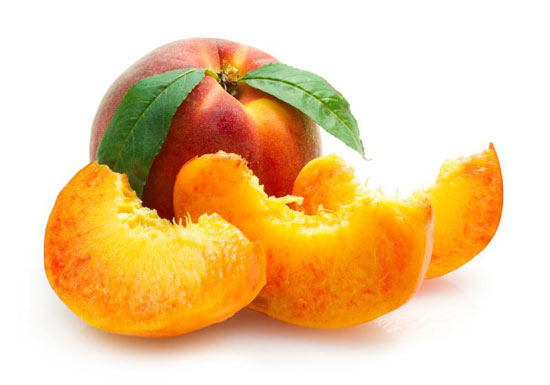Blue Pacific pioneers non-GMO verification of food flavors
By Ken Roseboro
Published: February 28, 2014
Category: Non-GMO Company Profiles, Non-GMO Ingredients
 To access all the articles in this month's issue of The Organic & Non-GMO Report, SUBSCRIBE NOW.
To access all the articles in this month's issue of The Organic & Non-GMO Report, SUBSCRIBE NOW.
Non-GMO status provides greater transparency to consumers
Blue Pacific Flavors recently received Non-GMO Project verification for five of its flavor products for food and beverages, becoming one of the first companies to earn non-GMO status for flavors. Thirteen additional products are in process for verification.
The Non-GMO Project Verified-approved products include Natural Peach with other natural flavors (WONF); Natural Strawberry WONF; Natural Vanilla WONF; Natural Coffee Concentrate; and Synature™ Beverage Enhancer, a natural flavor modifier.
The natural peach and strawberry flavors are from Blue Pacific’s Farm to Flavor® portfolio of whole food and plant-based ingredients sourced from California farms.
Blue Pacific’s Farm Stand Whole Fruit Flavors utilize natural fruit extractives and essences created through partnerships with local California growers and fruit juice processors. The line of natural flavors is based on analysis of unique heirloom fruit varietals to create authentic flavors that resemble the complex and diverse taste of fruits found in California farmers markets.
Founded in 1993, Blue Pacific produces natural and organic compliant fruit flavors and sweet flavor delivery for a wide range of food applications including beverages, fruit preparations, dairy, soymilk, plant-based milks, ice cream, frozen desserts, bakery and nutritional foods and confectionery products.
Primary motivation was greater transparency
Blue Pacific Flavors’ CEO Donald Wilkes says his company sought Non-GMO Project verification to better serve their food manufacturer customers and consumers.
“The primary issue for us has been the movement towards transparency,” he says. “Having third-party verification gives added credibility particularly with our natural food customers. It makes their life easier when they know their supply chain is validated through the Project. It also gives consumers a certain level of clarity and transparency.”
Such third-party verification is especially important in the absence of state and federal legislation on GMO labeling, Wilkes says.
Third-party verification in the US is also more stringent than non-GMO ingredient declarations, which are often used to confirm non-GMO status.
GM materials are generally not used in flavors, but a small number of individual flavoring substances, such as some terpenes, may be produced using GMOs in a fermentation process. Wilkes emphasizes that the small number of flavoring substances are made with GMOs but are not from GMOs. Out of some 3,000 flavoring substances used to produce compound flavorings, there are only about 20 substances that were made with a GMO within a fermentation process.
Challenge to apply non-GMO protocols to flavors
The non-GMO verification process presented challenges, says Wilkes.
Processing aids or adjuvants used in flavors could contain products made from GMOs, such as ethanol from corn or carbohydrate carriers from soy, both of which carry high GMO risk. According to Wilkes, the biggest challenge was that the Non-GMO Project protocols were developed to validate the non-GMO status of food products and not ingredients used in food products in amounts as small as several parts per million. A flavor may only make up .2% of a food product. “Flavors are used at a very small percentage (of the total food product),” Wilkes says.
Another challenge is that companies supplying ingredients to flavor companies such as Blue Pacific may not be willing to reveal sources for their ingredients; such ingredients may be protected by intellectual property restrictions. “The flavor industry is founded on intellectual property,” Wilkes says.
Non-GMO is 21st century equivalent of kosher
Despite the challenges, Wilkes says the verification process was worth it. “We appreciate what the Non-GMO Project is doing and the verification is good for building trust with consumers. At the end of the day people are appreciative that we went through the process,” he says.
Wilkes compares the Non-GMO Project with kosher certification. “In some ways, non-GMO verification is the 21st century equivalent to kosher certification,” he says.
Blue Pacific is seeing increased demand from food manufacturers for non-GMO flavors, particularly since Whole Foods’ announcement last year that it would require GMO labels on products in its stores by 2018. “More companies are looking to build supply chains that simplify the process of going non-GMO,” Wilkes says. “We think it is an important issue for our industry and hope that other companies will follow.
© Copyright The Organic & Non-GMO Report, March 2014




